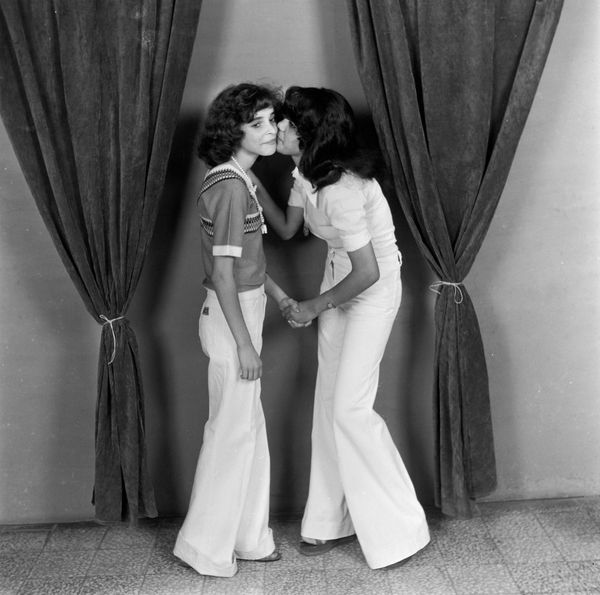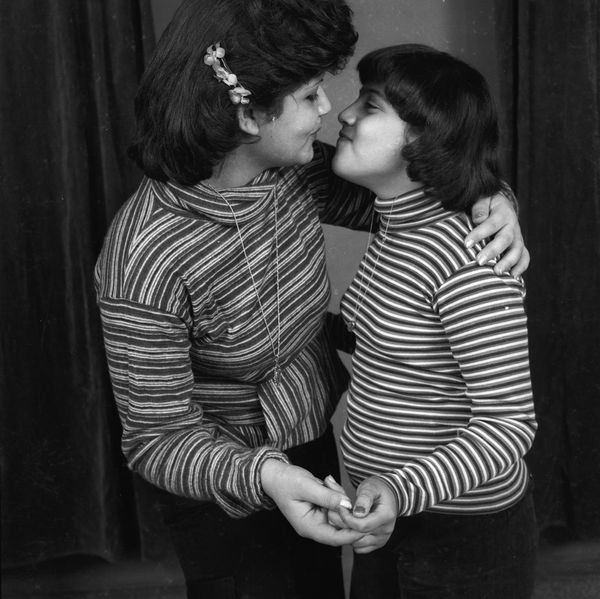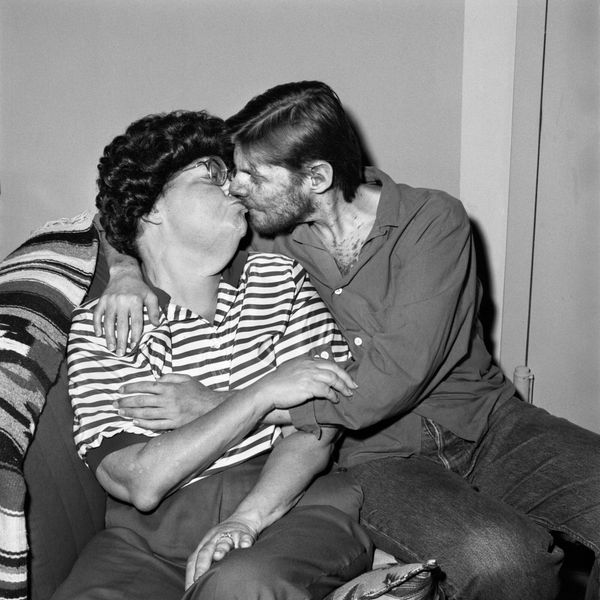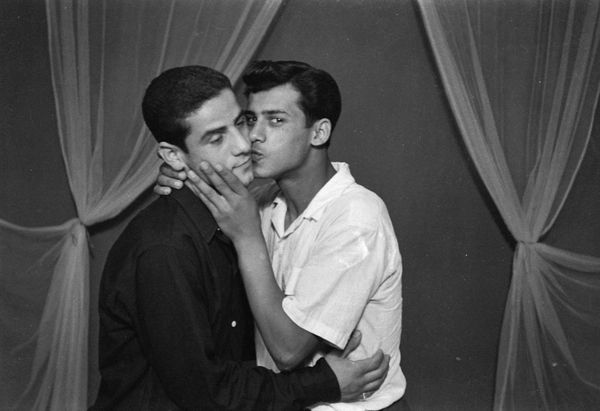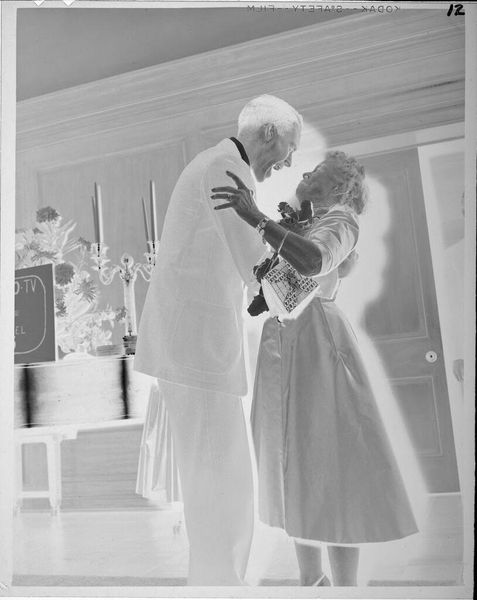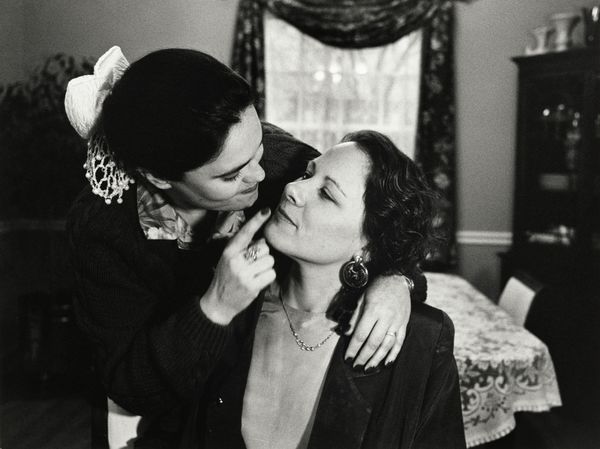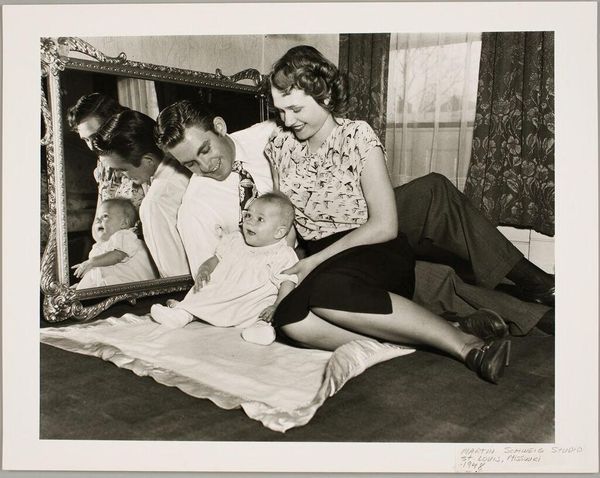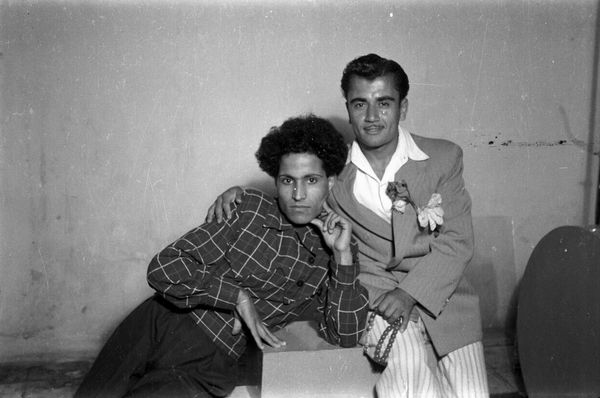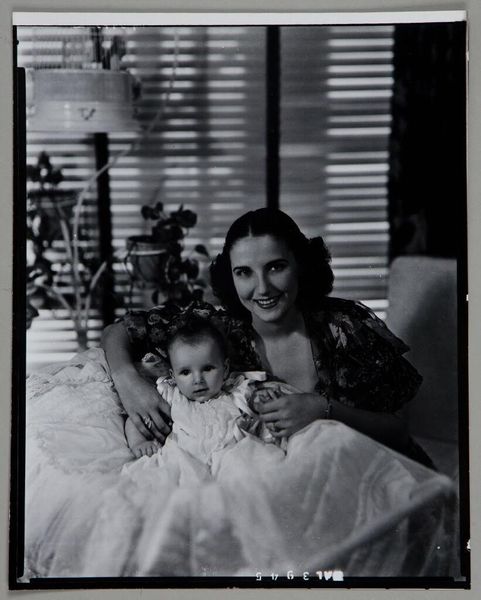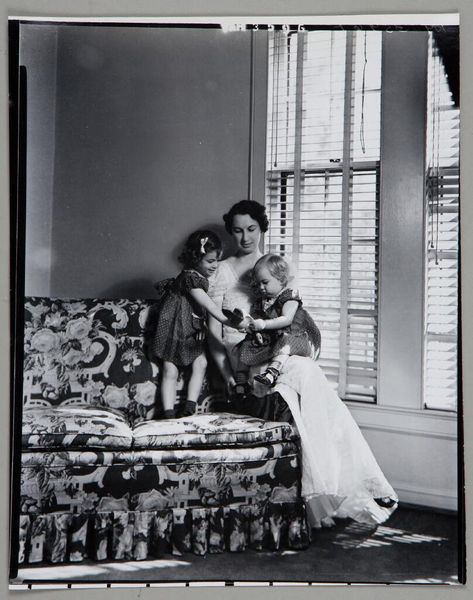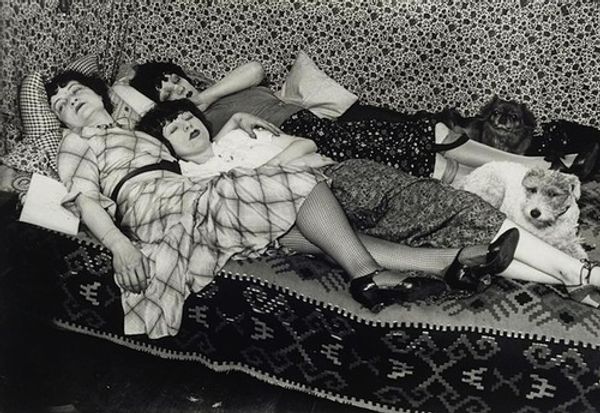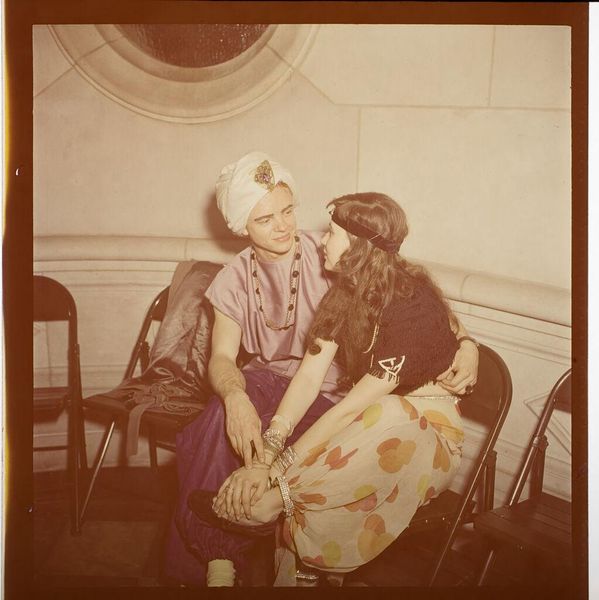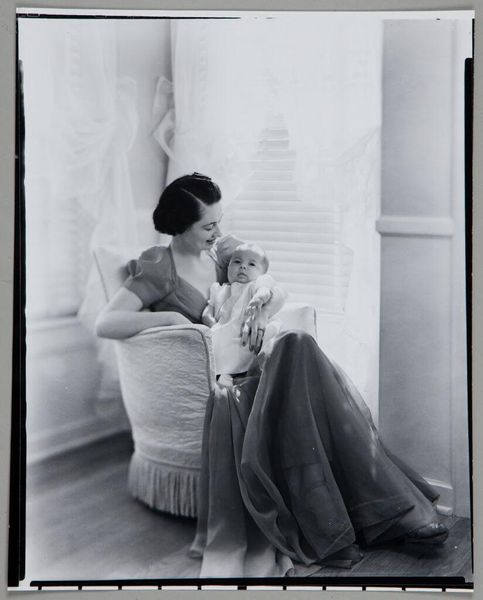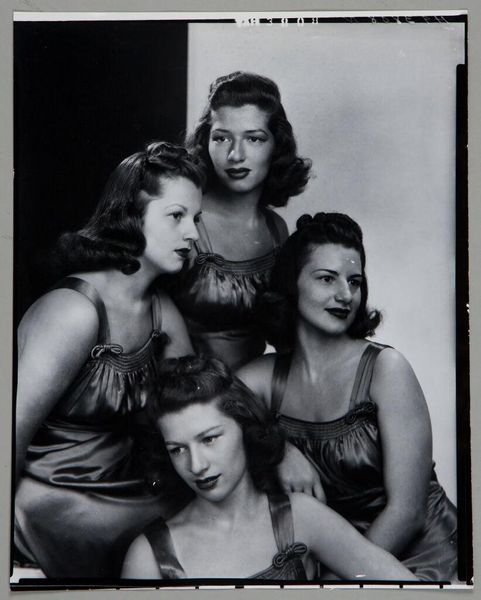
Bashasha (left) and a friend. Studio Shehrazade, Saida, Lebanon, late 1950s. Hashem el Madani 2007
0:00
0:00
Dimensions: image: 191 x 289 mm
Copyright: © Akram Zaatari, courtesy Hashem el Madani and Arab Image Foundation, Beirut | CC-BY-NC-ND 4.0 DEED, Photo: Tate
Editor: This is "Bashasha (left) and a friend," a photograph from the late 1950s taken by Hashem el Madani. It feels so intimate and almost rebellious. What strikes you about it? Curator: It's fascinating to consider this image within the socio-political context of 1950s Lebanon. Studio photography offered a space for self-expression, yet censorship and societal norms often dictated what was acceptable. Editor: So, this image might be challenging those norms? Curator: Precisely. The women's embrace, the studio backdrop, it all raises questions about public versus private identity, and the politics of representation within a specific historical moment. Editor: I see. It's more than just a picture; it's a statement. Curator: Indeed. And it prompts us to reflect on how we interpret images and the power they hold within their historical and cultural context.
Comments
tate 10 months ago
⋮
http://www.tate.org.uk/art/artworks/zaatari-bashasha-left-and-a-friend-studio-shehrazade-saida-lebanon-late-1950s-hashem-el-p79493
Join the conversation
Join millions of artists and users on Artera today and experience the ultimate creative platform.
tate 10 months ago
⋮
“Films inspired people a lot. They came to perform kissing in front of a camera. In a conservative society such as Saida, people were willing to play the kiss between two people of the same sex, but very rarely between a man and a woman. I remember only one couple who came to the studio and kissed in front of the camera, and they were not married. The rest of them were people of the same sex. One of them plays the woman, while the other plays the man.” Gallery label, June 2011
